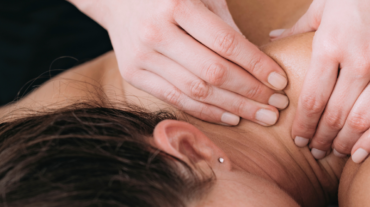What is the relationship between acupuncture and endometriosis?
Believe it or not, acupuncture and endometriosis have a long history together. For thousands of years, women with painful periods that have been difficult to treat have been diagnosed with what is only now being called 'endometriosis'. Much more commonly diagnosed today, endometriosis is being treated successfully with natural medicines such as acupuncture and Traditional Chinese Medicine (TCM). Both endometriosis and fibroids (related in terms of hormonal fluctuations and fertility issues), respond very well to acupuncture, and if you suffer from these conditions you have hope for recovery with acupuncture treatment. This is great news for many women diagnosed with endometriosis, as doctors often claim that the only 'cure' is a hysterectomy.
Usually, your doctor will prescribe medication for pain management, or possibly surgery (such as laparoscopy) to remove some of the endometrial tissue. Hormonal contraception therapy has become popular for the prevention and treatment of endometriosis, but this obviously prevents pregnancy as well.
While there seems to be no direct relation to the severity of your endometriosis and fertility, you may experience pain anywhere on a scale from zero to ten. So despite how much pain you are feeling, if conceiving is something you're interested in, then once again, acupuncture may be your answer.
How does acupuncture treat endometriosis?
Endometriosis in TCM is essentially thought of as Blood (capitalized to differentiate from the scientific definition) stasis causing various types of pain and frequently fertility issues as well. Blood stasis can be attributed to a few different disease patterns, generally split into two categories: those of deficiency and those of excess.
The two deficiency patterns leading to endometriosis include Spleen Qi/Blood deficiency, and Kidney and Liver Yin deficiency. Both patterns lead to pain because there is a lack of energy required to push the blockage away. Spleen Qi/Blood deficiency accompanies symptoms such as menstrual pain towards the end of your period, pain relieved by pressure or massage, a pale complexion, and/or tiredness. Kidney and Liver Yin deficiency usually presents with symptoms such as dull pain towards the end of your period, sore low back, scanty bleeding, blurred vision and/or tiredness.
There are three excess patterns in TCM that can lead to endometriosis. They are Liver Qi stagnation, Cold accumulation, and Damp-Heat accumulation. Liver Qi stagnation usually presents with signs such as lower abdominal pain before and/or during your period, a feeling of distension in your breasts and/or abdomen, menstruation with clots, and/or pre-menstrual tension. Cold accumulation generally presents with signs such as lower abdominal pain before or after your period, centralized abdominal pain, scanty menstrual flow with clots, and/or a feeling of coldness. Finally, Damp-Heat accumulation will present with such signs as pain before your period and sometimes during as well, vaginal discharge, and/or a burning sensation.
For more information, and to obtain your own free TCM diagnosis, contact us.
By Richard Lobbenberg, Acupuncturist and TCM Practitioner
These links may also be helpful:
The Yellow Gazebo Fertility Program







